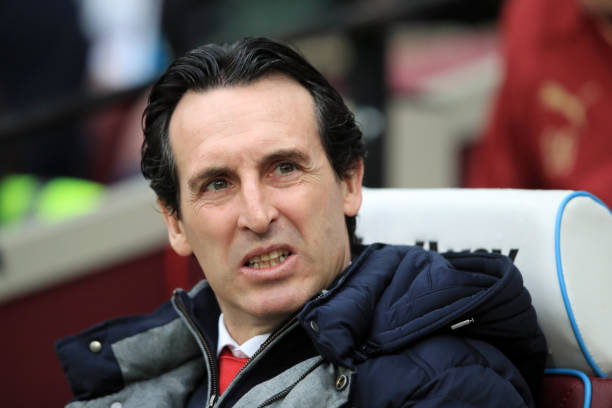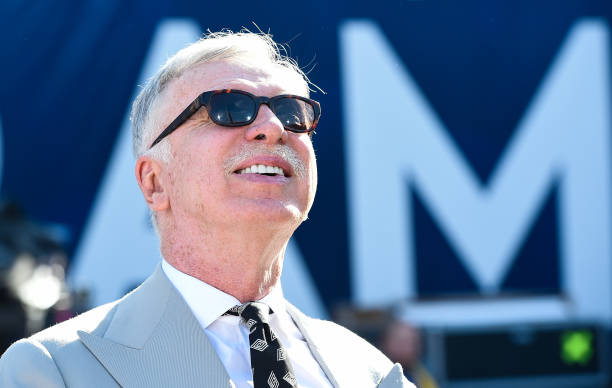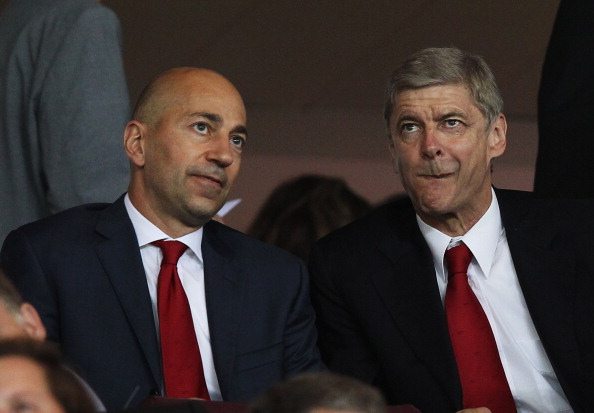Despite being one the best run clubs in the country for the majority of the last century, under the watch of Ivan Gazidis, Arsenal seriously dropped the ball at exactly the wrong time.
The rules

Having written at length about the state of the Arsenal first team squad and the commensurate need for investment, I’ve seen and heard a lot of comment about how the Liverpool game and the rush for fourth may encourage Stan Kroenke to spend some of the Wall-Mart billions.
Unfortunately, I’m here to give everyone a reality check. And not just the obvious one about Silent Stan’s reluctance to spend. The fact is, even if KSE wanted to go full Abramovich or Sheikh Mansour, it simply isn’t possible, due to regulations that govern football clubs in the Premier League.
Apologies to readers who know this, but most Arsenal fans, and indeed football fans as a whole, don’t.
You see, while Uefa’s FFP has shown itself as toothless and corruptible as you’d expect given the nature of that governing body, the Premier League’s version, Short Term Cost Controls (STCC), has shown itself to have a little more teeth, although typically in ways that benefit some parties more than others.
Perhaps intended to work in tandem with UEFA’s model that deals with overall spending vs income, the EPL version is rather more specific. The Premier League recognised that it was wage inflation rather than transfer fee inflation that was posing the greater risk to the stability of football clubs – just ask Leeds United, Q.P.R and Sunderland fans. The recently implemented regulations (which into effect in 2016/17) seek to stop these spiralling out of control, particularly against the backdrop of TV money accelerating the increase in player wages. These regulations were also influenced by the consistent proof that at all but the obscene levels of transfer expenditure, it is the amounts of money spent on wages rather than on initial signings that has the greater correlation with league position.
Accordingly, rules were introduced to put a cap on increases in wage expenditure, in a manner that attempted to be fair across the board.
This was laid out in a number of ways:
- STCC rules only apply to clubs with an annual wage bill of more than £67m (including salaries, bonuses and image rights).
- Using the previous year’s wage bill as a baseline (unless the club wishes to use 2012/13 season – which almost none do given how much wages have increased), these clubs cannot raise wages by more than £7m per annum (or a set figure if using the 2012/13 baseline that stood at £19m in 2016).
- These rules are directly related to centralised TV revenue distribution. So, if a club demonstrates its wage increases are financed by its ‘own revenue’, they can add to this £7m a year limit.
- ‘Own revenue’ includes player sales, commercial/sponsorship deals, match day income and UEFA & domestic prize distributions.
At a first glance, this all seems eminently sensible. If you are well managed, you should do better on the pitch, and as a result, generate more commercial revenue, match day income and prize money. Being well managed off the pitch should increase player sales revenue and other commercial income. As such, it is a very sensible model.
The problem is, these rules were introduced after the horse bolted in terms of encouraging a level playing field and preventing the abuse of the league’s competitive structure by vast owner financial input, thus inflating wage figures. By finally realising that the ‘greed is good’ mantra has its dangers even with the billions pumping into top-flight English football, the Premier League has cemented the new hierarchy formed by the uber-spenders of recent years.
2What about Arsenal?

Although disadvantaged compared to those who’ve already had vast owner investment, Arsenal, with their high wage bill, match day revenue and established status, should be in a decent position to thrive under this model, particularly compared to the noisy neighbours.
Unfortunately, however, despite being one the best run clubs in the country for the majority of the last century, under the watch of Ivan Gazidis Arsenal have, in a strategic sense, seriously dropped the ball at exactly the wrong time.
Long-term readers will probably know of my anger towards the majority of the pre-Kroenke board (bar Diamond Danny and a couple of others) for their failure to invest any of their own money into the club when we were one of the best teams in Europe and had Arsene at the absolute peak of his powers but were hamstrung by the stadium build. They didn’t give the manager funds when he was still spotting world beaters before his contemporaries, and still had the reputation to attract them.
Instead, we watched them all go to rivals while our best players were about to start declining. Our policy became penny wise and pound foolish, with refusing to pay £11m for Ronaldo being a prime example. Despite this, all were happy to sell their shares to Kroenke or Usmanov, pocketing extraordinary wealth and profits – in some cases having contributed very little.
Since then, however, things have got a lot worse in terms of how the club is run.
The arrival of more cash-rich rivals applied a new level of pressure on Arsenal, particularly when augmented by both Spurs and Liverpool getting their acts together in a way not seen since the 1980s. The club, understandably chasing the Champions League Euros, panicked, and started trying to spasmodically throw money at the problem (within the bounds of self-sufficiency rather than owner investment) while posturing as a bigger club than we are.
After the failure to build on the Invincibles and the reluctance to augment the crop of younger players that nearly won the title in 2007/08, the refrain from the fans understandably became “Spend Some F*#@ing Money”, particularly in the face of increasing ticket prices.
Unfortunately, the grand loosening of purse strings that was heralded with the Wenger smirk and the arrival of Mesut Ozil, also ushered a period of spectacular asset mismanagement coupled with a total lack of a strategic approach.
Compared to the last three or four years of the Gazidis vs Wenger phony war, our parsimony period of the preceding decade looks exemplary.

